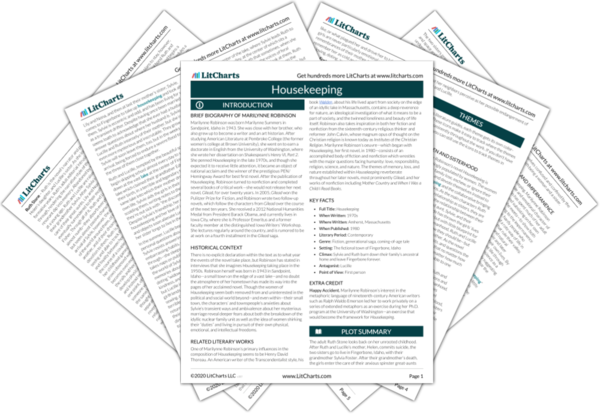Here, Ruth is the very image of a transient—disheveled, tired, and fresh off the rails. All of the other moments that have slowly eroded her connection to Lucille, to Fingerbone, and to normalcy itself pale in comparison to her trip in the freight car with Sylvie. Ruth, whether she is fully conscious of it or not, has chosen Sylvie above all else, and it seems there is no turning back.
